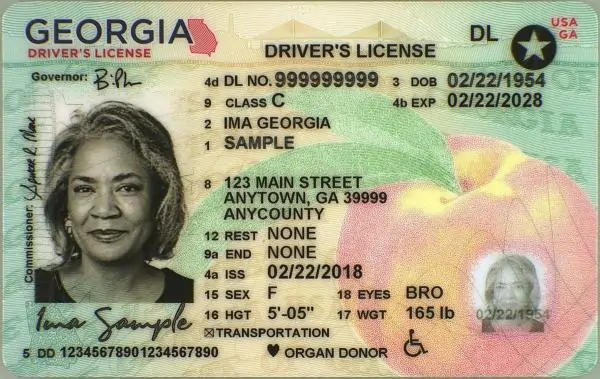Georgia
ID Scanning Laws
In Georgia, a retailer, including hotels, is allowed to retain and use information obtained from IDs only for specific purposes. These include:
- Verifying a customer’s age
- Establishing a customer’s identity
- Confirming a customer’s license status to operate a vehicle
- Disclosing such information to another business for:
- Verifying a check payment
- Evaluating creditworthiness
- Detecting or reducing the risk of fraud, abuse, identity theft or other crimes
- Collection activities
- Confirming that a customer has met the motor vehicle financial responsibility requirements
- Disclosing such information to:
- The department of transportation
- Insurance licensees
- Notaries
- Financial institutions if permitted by federal law
- Law enforcement agencies




Georgia State Legislature
ID Scanning Resources
The Legal Framework
Georgia ID Scanning Laws and Regulations
In the hospitality industry, verifying the identity of customers is of utmost importance. This not only ensures the safety and security of the premises but also helps in maintaining a record of customers for future reference. In Georgia, the laws governing the scanning of IDs by businesses are clearly outlined.
In Georgia, a retailer, including hotels, is allowed to retain and use information obtained from IDs only for specific purposes. These include:
- Verifying a customer’s age
- Establishing a customer’s identity
- Confirming a customer’s license status to operate a vehicle
- Disclosing such information to another business for:
- Verifying a check payment
- Evaluating creditworthiness
- Detecting or reducing the risk of fraud, abuse, identity theft or other crimes
- Collection activities
- Confirming that a customer has met the motor vehicle financial responsibility requirements
- Disclosing such information to:
- The department of transportation
- Insurance licensees
- Notaries
- Financial institutions if permitted by federal law
- Law enforcement agencies
These provisions are in accordance with the Georgia Code O.C.G.A. § 40-5-120 (2012), which states that it is a misdemeanor for any person to scan another person’s driver’s license, permit, or identification card without the person’s prior knowledge and consent. However, if a person consents to the scanning of their driver’s license, permit, or identification card, the information collected may be stored and used for any legitimate purpose.
The law also provides for certain scenarios where merchants are required to record information related to identity, such as the sale of controlled substances and scrap metal recycling. ID scanning can improve the ease and accuracy of record keeping in these scenarios.
For instance, Georgia HB249, which relates to controlled substances, requires each dispenser to submit to the agency department by electronic means information regarding each prescription dispensed for a Schedule II, III, IV, or V controlled substance. The information submitted for each prescription includes, but is not limited to, the DEA permit number, date the prescription was dispensed, patient’s name, address, date of birth, and method of payment.
Similarly, Georgia HB461, which relates to Secondary Metal Recyclers, mandates that a secondary metals recycler maintain a legible record of all purchase transactions. This record includes a scanned or photocopied copy of a valid personal identification card of the seller and of the deliverer, if such person is different from the seller.
Please note that this information is intended to provide a general overview and does not constitute legal advice. Always consult with a legal professional for advice specific to your situation
Georgia Anti-Trafficking Network
Our Fight Against Human Trafficking



Knowledge Base
Frequently Asked Questions
Yes, hotels in Georgia can scan IDs as long as they obtain the individual's prior knowledge and consent.
Hotels can retain information for verifying a customer’s age, establishing a customer’s identity, confirming a customer’s license status to operate a vehicle, and for other specific purposes outlined in the Georgia Code O.C.G.A. § 40-5-120.
Yes, hotels can disclose such information to another business for specific purposes or to certain entities like the department of transportation, insurance licensees, notaries, financial institutions if permitted by federal law, or law enforcement agencies.
Yes, a hotel can disclose the information obtained from scanning a guest's ID to another business for specific purposes, such as verifying a check payment, evaluating creditworthiness, detecting or reducing the risk of fraud, abuse, identity theft or other crimes, collection activities, or confirming that a customer has met the motor vehicle financial responsibility requirements.
While the law provides for certain scenarios like the sale of controlled substances and scrap metal recycling where merchants are required to record information related to identity, these scenarios are not typically applicable to hotels.
Yes, a hotel can disclose such information to law enforcement agencies.
